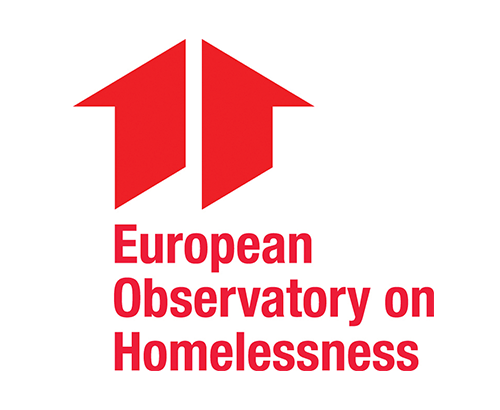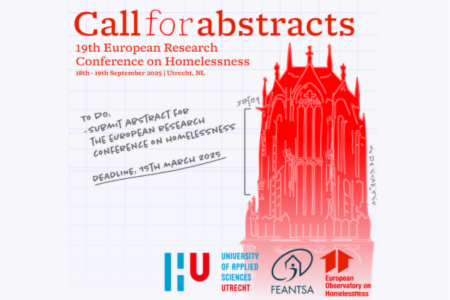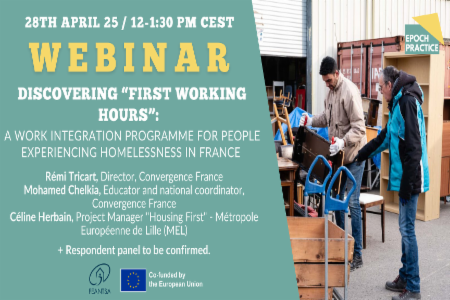The Private Sector and Emergency and Temporary Accommodation in Europe

Read and download the publication here (Online PDF)
This research looks at the activities of for-profit providers of temporary accommodation for people experiencing homelessness in the EU. The study encompasses the use of private sector hotels, B&Bs, short-term lets in the private rented sector, and holiday homes as temporary accommodation and the activities of the private sector in delivering emergency shelter and temporary supported housing.
Summary
• This report is the twelfth in a series of comparative studies on homelessness in Europe. The focus is on private sector activity in delivering temporary and emergency accommodation to people experiencing homelessness.
• The report defines the private sector as encompassing organisations that exist to create profit for owners, investors, and shareholders. This broadly excludes NGOs, social businesses, and social enterprises that might make operational surpluses, but which are not generally focused on generating profit. However, it is difficult to draw a precise line between for-profit and non-profit organisations.
• Three main types of temporary accommodation are included: emergency shelter, temporary supported housing, and for-profit temporary accommodation, i.e., the use of hotels, B&Bs, and other commercial accommodation.
• Experts in homelessness in the Czech Republic, Denmark, France, Germany, Hungary, Ireland, Netherlands, Slovenia, Spain, and Sweden were asked to complete a standardised questionnaire devised by the European Observatory on Homelessness. Some comparisons are drawn with the UK as a former EU Member State. The countries varied in how they defined and responded to homelessness and there were differences in the scale of the markets for private sector temporary accommodation.
• There has been increasing privatisation and marketisation of wider European social and housing policy since 1980, which has mainstreamed the idea of private sector activity in areas that include homelessness. Debates about private sector involvement can become polarised, i.e., that the private sector and free markets are seen as offering unparalleled efficiency compared to government or NGOs, or they are seen as inherently socially destructive and as exploiting vulnerable and marginalised populations. Competition between NGOs to secure public funding of homelessness services is quite widespread, particularly in North Western Europe.
• Where there has been public debate and political concern about the use of private sector temporary accommodation, it has tended to focus on high prices being charged for poor quality services. There are also worries about long-term residence in these forms of accommodation for people experiencing homelessness, including families, as they are often not designed for long-term use.
• The potential benefits of private sector activity were also explored in this research. For example, a capacity to respond very quickly when someone needs emergency accommodation which was illustrated during the COVID-19 pandemic.
• Private sector activity varies. There was some planned use of the private sector, where an individual or household was temporarily accommodated, as part of a normal process of meeting their housing need or preventing homelessness. There was also unplanned, ‘overflow’ use of private sector accommodation, where people experiencing homelessness were placed in private sector accommodation for indefinite periods, not as part of a plan or system, but because homelessness services and systems were overwhelmed. This pattern occurred when demand for affordable and social housing far exceeded supply.
• For-profit private sector provision of emergency shelters and supported housing for people experiencing homelessness was not widespread. Most homelessness services were reportedly run by NGOs (often with public funding) or were part of the public sector (provided by municipalities/social services). However, private sector bidding for municipal or state contracts to run services was increasing in some Member States. This trend merits attention because of its potential consequences around the financialisation of accommodation and housing for people experiencing homelessness. This concerns private for-profit investment in the sector, which is sometimes labelled as social investment.
• Some Member States had very low-cost accommodation markets in which people experiencing hidden homelessness, housing exclusion, and homelessness lived or were temporarily accommodated. This included informal, unregulated private rented sector housing, (very) low end private rented housing, holiday parks (static caravans), and workers’ hostels in some Member States. Legal security of tenure and physical standards were reported as often being very poor.
• The nature of the homelessness system and regulatory framework, as well as pressure on affordable housing supply influenced the nature and extent of the private sector presence in temporary accommodation across EU Member States. In some countries, including France, Ireland, and Sweden, private sector activity was integral to responses to homelessness, in some others, such as the Netherlands and Spain, it seemed to be growing. In other cases, including Hungary and Slovenia, there was much more limited scope for development as formal overflow accommodation, but informal overflow was being provided by private sector provision of insecure, substandard accommodation.
• Among the participating Member States, the highest absolute and relative use of private sector temporary accommodation was occurring in France, Germany, Ireland, and Sweden. Use was least common in the Czech Republic, Hungary, and Slovenia. Looking across Europe as a whole, France and England (in the UK) had the highest numbers of people experiencing homelessness in private sector temporary accommodation. 1
• Two broad trends were evident across several of the participating Member States. The first was a growing presence of the private sector in the provision of temporary accommodation and the second was the private sector increasingly competing with NGOs for publicly funded contracts to run homelessness services, usually at the municipal level.
• The three main concerns about the use of private sector temporary accommodation across Europe were that it offered poor standards, was often expensive, and that it was sometimes being used for inappropriately long periods of time for families, children, and people with support needs. However, there were significant differences around the definitions of what constituted acceptable living conditions for people experiencing homelessness between the participating Member States.
• The partially or unregulated nature of temporary accommodation markets often enables the private sector to charge high prices for low quality services. There are structural drivers, centred on the commodification of European housing markets and systemic, long-term shortfalls in affordable housing supply, under- pinning the creation and maintenance of these temporary accommodation markets. In some countries, such as the Czech Republic, hidden homelessness may be present at scale in unregulated private sector provision.
• The solution to European homelessness lies in addressing shortfalls in affordable and social housing supply and the creation and proper resourcing of integrated, preventative, housing-led strategies. Much of the current private sector activity in temporary accommodation in Europe does not support these goals, but there is scope to modify the ways in which these markets work, to shape them in ways that might encourage better services and better outcomes from the private sector.
• The failure of public policy to prevent and address homelessness creates opportunities for profit, without a requirement to provide high quality services in return, and this reality has hitherto been poorly understood and documented in Europe. This research points to the uncomfortable fact that a lot of money is being made from homelessness in Europe.
1 France had a higher level of use of hotels than the UK and other EU Member States participating in this research.




